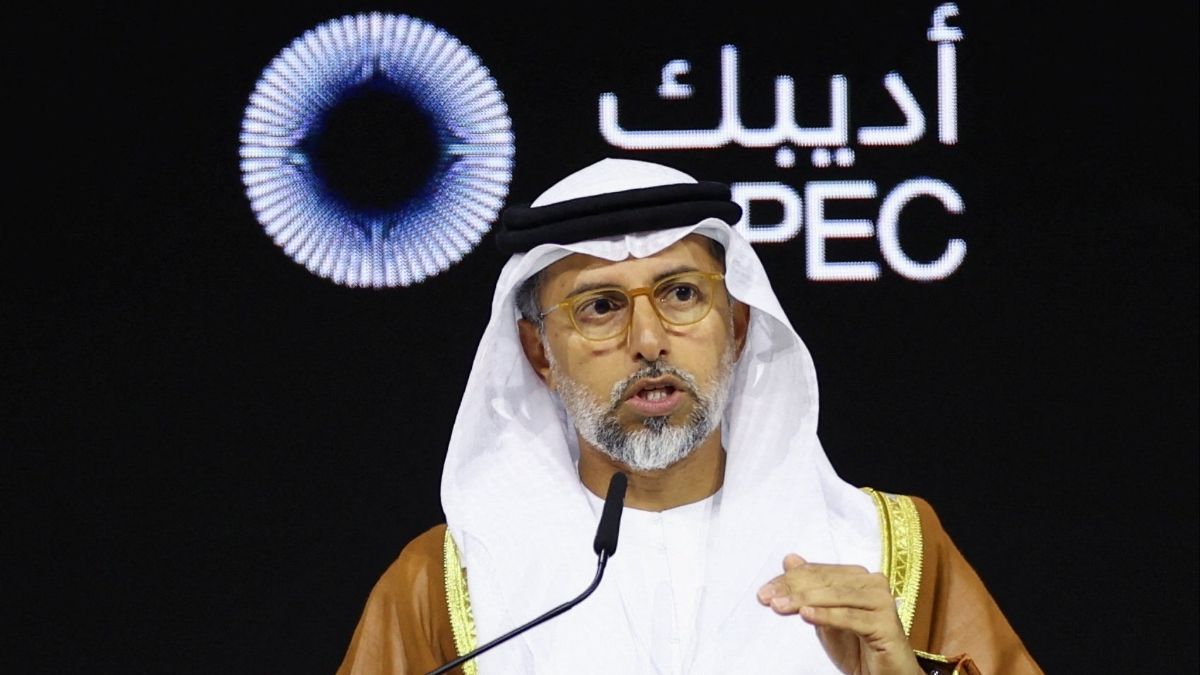Is OPEC’s oil production hike pause a strategic move or one out of necessity?
 UAE Minister of Energy Suhail Mohamed Faraj Al Mazrouei speaks at the Abu Dhabi International Petroleum Exhibition and Conference (ADIPEC) | REUTERS
UAE Minister of Energy Suhail Mohamed Faraj Al Mazrouei speaks at the Abu Dhabi International Petroleum Exhibition and Conference (ADIPEC) | REUTERS
The OPEC+ (Organization of the Petroleum Exporting Countries) decided to pause its planned oil production increases for the first quarter of 2026, citing concerns over excessive global supply and renewed market uncertainty. This move comes just as energy leaders converge in Abu Dhabi for a major oil summit this week.
The latest OPEC+ meeting resulted in a modest output hike of 137,000 barrels per day for December 2025, but signalled that any further increases—previously scheduled for January, February, and March—will be frozen while the alliance monitors market conditions and seasonal trends.
This decision highlights an ongoing balancing act: OPEC+ members wish to stabilise prices, avoid flooding the market, and maintain flexibility to reverse course if supply or demand shifts unexpectedly.
The arrangement also maintains voluntary cut mechanisms, allowing up to 1.65 million barrels per day to be withheld depending on ongoing assessments.
The move comes amid new US and UK sanctions against Russian oil firms, notably Rosneft and Lukoil. Interestingly, Lukoil’s branding is featured prominently at the Abu Dhabi International Petroleum Exhibition and Conference (ADIPEC) as a sponsor/partner.
These sanctions, a response to Russia’s actions in Ukraine, have injected additional risk into global supply forecasts and made OPEC+’s decisions more complex.
Meanwhile, the United Arab Emirates continues its dual role, maintaining close relations with Russia for trade, while also acting as a go-between for prisoner exchanges between Moscow and Kyiv.
Commentary from energy analysts points to OPEC+ deliberately "blinking" not out of weakness but strategic caution. The group is keenly aware that oversupplying the market could cause prices to collapse, especially as supply outpaces demand and inventory builds up.
Russian sanctions and price dip
By pausing production hikes, the alliance projects unity and shows its willingness to adapt to evolving forecasts and sanctions effects.
Benchmark Brent crude has recently traded around $65 per barrel, well below its post-pandemic highs of $115 following Russia’s aggressive push against Ukraine in 2022.
The recent price dip is a result not just of OPEC+ actions, but also heightened global output and weaker demand, compounded by sanctions pressure and uncertainty from new US drilling pushes spearheaded by US President Donald Trump’s administration.
The annual ADIPEC summit is a convergence for global energy policy and business. The UAE, recent host of the COP28 UN climate conference, looks to back its commitment to scaling up oil production to 5 million barrels per day. However, how they tackle the Russian elephant in the room remains to be seen.
Business